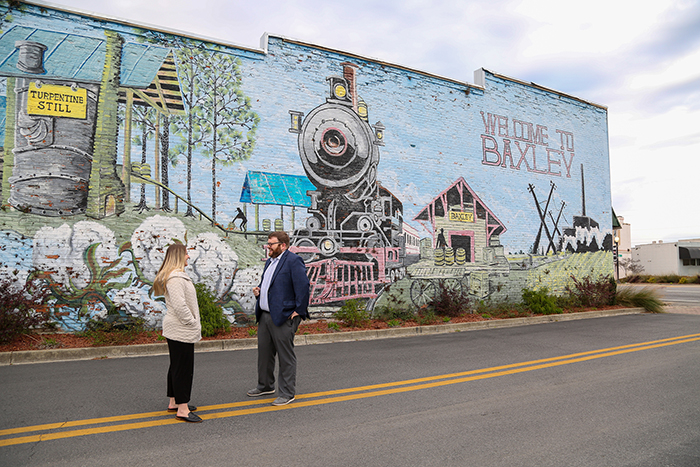May 26, 2022
by Jere W. Morehead, President
At its very core, the University of Georgia exists to improve lives and strengthen communities. Nowhere is this seen more clearly than in our extensive public service and outreach efforts, which contribute significantly to UGA’s $7.4 billion annual economic impact on Georgia. Two new programs—Connected Resilient Communities and PROPEL—are helping UGA to fortify communities across the state even more through economic and workforce development.
Launched last fall, PROPEL (Planning Rural Opportunities for Prosperity and Economic Leadership) provides rural communities with resources to create systems needed to support their own economic and workforce development strategies. The program is led by UGA’s Carl Vinson Institute of Government and funded by a U.S. Department of Agriculture grant. Eight communities were selected to participate initially, but thanks to a gift from the UGA Foundation, PROPEL will now expand to additional rural communities and create a PROPEL Rural Scholars Program to provide opportunities for UGA students to work side by side with Vinson Institute faculty in PROPEL communities each year.
The Connected Resilient Communities program is facilitated by UGA’s Archway Partnership with funding from the UGA Foundation and the Provost’s Office. Harnessing our faculty’s capabilities in data analytics, civic engagement, and technical assistance, the program helps communities build and implement economic and community development plans and identify future challenges and opportunities for growth and prosperity. Communities partner with UGA over a period of 12-18 months to complete three projects designed to increase resiliency and earn the “Connected Resilient Community” designation. Thomson-McDuffie County was the first recipient of the designation, and four additional communities—Hart, Newton, and Washington counties and the city of Thomaston—are now working toward it.
Whether boosting local workforces, revitalizing downtowns, building leadership capacity, or improving infrastructure, UGA is committed to working closely with communities to ensure a bright future for all Georgians.

